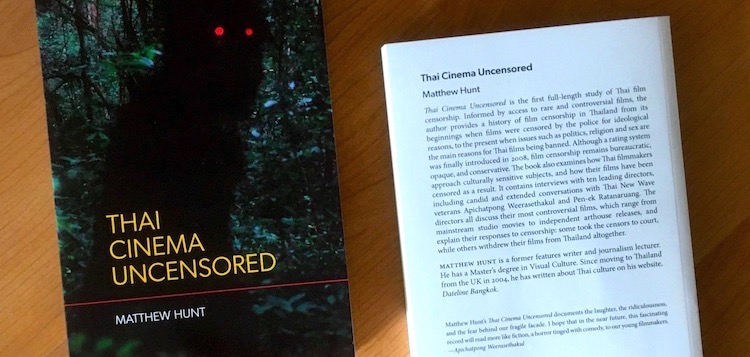Historian Nattapoll Chaiching’s book ขุนศึก ศักดินา และพญาอินทรี การเมืองไทยภายใต้ระเบียบโลกของสหรัฐอเมริกา
2491-2500 (‘feudal warlords and the eagle: Thai politics and the United States 1948-1957’), about Thailand’s relationship with the US during the Cold War, was a runaway bestseller among liberals and political enthusiasts when it was published last year. His earlier work, ขอฝันใฝ่ในฝันอันเหลือเชื่อ ความเคลื่อนไหวของขบวนการปฏิปักษ์ปฏิวัติสยาม
(พ.ศ.
2475-2500) (‘I dream an incredible dream: the anti-Siamese revolutionary movement 1932-1957’), published in 2013, also saw a revival in sales after it was among
five titles seized by police from the offices of the publisher, Same Sky Books.
Nattapoll has been heavily criticised by conservatives, culminating in a lawsuit issued on 5th March. In December last year, Chaiyand Chaiyaporn, a professor at Chulalongkorn University, accused him of falsifying references in the Ph.D. thesis on which his Cold War book was based. A week later, an ultra-royalist former monk, Suwit Thongprasert, accused him of
lèse-majesté: “I have realized the wickedness of a person who calls himself a scholar and has got a Ph.D. who dared to develop a thesis with false information... harmful towards the royal institution.” (Suwit’s statement was issued under his monastic title Buddha Issara, though he was defrocked in 2018 as a result of
his role in the 2014 PDRC protests.)
Last week, aristocrat Priyanandana Rangsit sued Nattapoll and Same Sky Books for defamation, seeking ฿50 million in damages. According to the lawsuit, Nattapoll’s books incorrectly assert that her grandfather, Prince Rangsit Prayurasakdi, sought an improper political influence over Phibun Songkhram’s government in the 1940s. She argues that this misrepresentation of her ancestor—who died seventy years ago—tarnishes her family name, and is thus defamatory to her personally.



